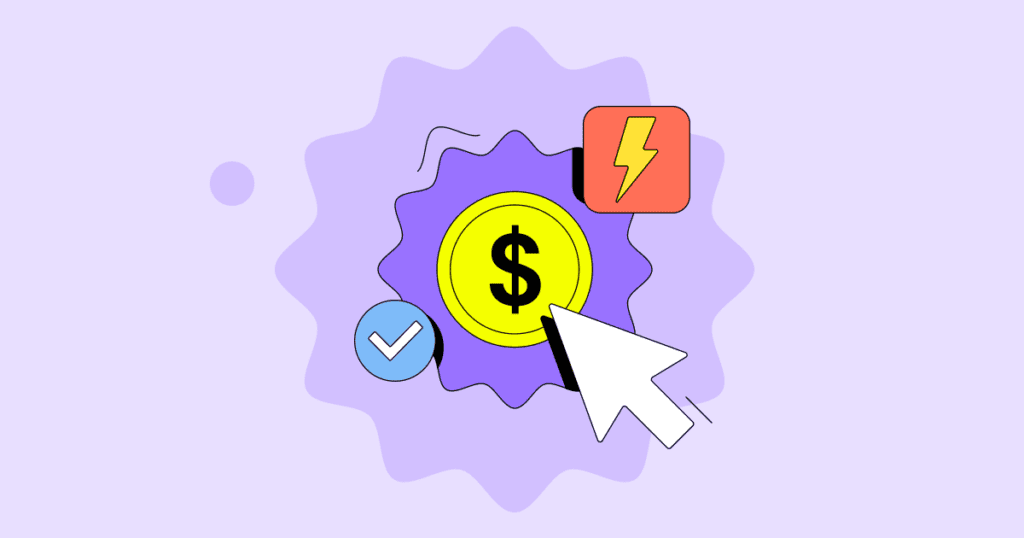As you enjoy watching your favorite TV show, you may not know how much money the producers need to make from it. Apart from entertaining and educating you, these shows have to make some profit for their creators. The amount of money that they make varies depending on each show and its target audience.
The Television Landscape: An Overview
What are TV shows? They can be live or recorded programs. You will find them broadcast on cable, satellite, or over-the-air television services. Some appear on DVDs. You may have noticed that some show recordings happen in front of a live studio audience. But how does a show come into being? Read on for an overview of what it takes to make a TV show, from start to end.
Coming Up With the Idea
Without an idea, a TV show will not come to fruition. The creator may get inspiration from something that occurred in real life. They may use their imagination or take a book’s premise. With that idea, the creator will come up with a concept and write a script outline. They will determine who they imagine to be the target audience and formulate the characters and storyline.
Pitching the Idea
After formulating the idea, the producer will pitch the show to a production company. They must come armed with a script and a well-thought-out presentation. If the pitching process goes well, the team can start producing the show.
The Pre-production Stage
What follows is the pre-production phase, which requires all hands on deck. The writers develop the script containing the characters, dialogues, and storylines for each episode. Next, the producers or network company officials start casting actors, looking for directors, and deciding the locations for shooting. At this time, the team should have planned the budget and production times.
Producing the Show
Production involves the actual recording of the show’s footage. The crew members work together to ensure the lighting, camera work, and audio are precisely the way they were envisioned. After production, the footage goes to the editing team to add visual and music/sound effects and other editing tasks to produce the final result.
Broadcasting
After everything is ready, the TV show airs on streaming platforms, networks, or cable for the audience to watch. At this point, the producers monitor the reviews, ratings, and audience reception. The gathered information can influence changes or whether the TV show will renew and continue airing.
Main Ways Through Which a TV Show Makes Money
A TV show is like a business. It needs to make money to survive. Otherwise, the show will have to deal with cancellation, leading to financial and job losses. Here are some routes to profit.
Advertisements: The Primary Income Stream
Advertisements can be termed as the backbone of a TV show’s revenue since it is among the primary ways a TV show makes money.
Companies who would like to promote their products approach the production company to have their ads appear during the show. The advertisement costs primarily depend on the number of viewers. So, the larger the audience, the higher the companies pay for the commercials.
Generally, the estimated ad earnings for a TV show is $1 for each viewer. If an episode gets five million viewers, the production company for the show rakes in $5 million in ad revenue.
However, not everyone views the episodes when they air live. Most people record the shows using DVR and other methods, then watch them later. Some individuals may also find illegal ways to watch the shows, which affects ad revenue.
TV shows which cannot attract a massive viewership may get canceled since the network won’t risk funding them. The low viewership may result from people watching the episodes illegally or in recorded formats.
Syndication: Cashing In on Reruns
When a TV show is new, it may not have a mass following. However, as it continues airing, it gains more fans and becomes more popular. Eventually, it comes to an end and airs its very last episode.
In the TV show business, an end of a show may mean the beginning of new income-generating opportunities. How’s that possible? Through syndication.
Simply put, syndication is an agreement where a show airs on different networks or platforms. There are two types of syndication agreements:
- First-run syndication: The TV show is originally produced for syndication, not a specific network, for example, the Wheel of Fortune and The Ellen DeGeneres Show.
- Off-network syndication: With this method, networks buy broadcasting rights for a TV show that initially aired on a different network. It allows the program to continue airing on another platform, reaching newer and older audiences interested in watching the reruns.
Syndication enables the TV show to continue making money and extend its lifespan. A good example is the Friends sitcom that initially appeared on the National Broadcasting Company (NBC) from 1994 to 2004. Netflix later syndicated this popular TV show.
Licensing and Distribution
After recording the show and editing it into the final product, it needs a distribution network to reach its audience. The various methods of airing the TV show create several revenue-generating streams. Here are some ways TV shows make money by distributing their content to fans in different parts of the world.
DVDs: Old Is Gold
Some years back, DVDs were among the major ways producers distributed their TV shows. However, with the rise of broadband, DVD sales have declined as people seek digital ways to view their favorite shows.
But even in this internet age, some people prefer to buy DVDs. They are usually packed with special features, unavailable to those who watch the show on TV networks. Some add-ons include:
- Commentary by crew members and the cast on various episodes
- Inside information about the TV show, including the filming process and locations
- Deleted scenes
- Exclusive interviews
- Blooper reels
DVD sales create yet another income stream for TV shows. In this modern age, various TV shows have switched to digital codes to replace the old discs. Rather than purchasing a physical copy, viewers buy the unique codes, offering them the same benefits they would have derived from a DVD.
Streaming Services: Global Reach and More Money
Streaming services like Hulu, Disney Plus, Netflix, and Amazon Prime Video offer a unique and convenient way for fans to watch their favorite shows. With a fast internet connection and a monthly subscription to a specific streaming service, you can access hundreds of TV shows anywhere across the globe.
These streaming services charge their users a monthly rate to give them access to various movies and TV shows. The networks generate millions of dollars from these subscriptions, which they can use to produce programs that attract more audiences.
TV shows earn money from Netflix or their desired streaming services. Producers may also pitch to such companies to receive funding for getting their shows off the ground.
Cable TV Networks
Popular TV networks like Home Box Office (HBO), Black Entertainment Television (BET), and Starz broadcast TV shows to their premium audiences. You have to pay a subscription to access the shows on these networks.
HBO and other cable TV networks generate revenue from these payments, giving them enough money to fund production. They may also run commercials between the movies or TV shows to make extra revenue. The TV networks can use the generated income to pay for TV shows that appear on their platform.
Licensing Fees
Showrunners also generate revenue for their TV shows by charging licensing fees to networks interested in airing their program. On the other hand, the network gets exclusive rights to broadcast the show in domestic or international markets, depending on the signed agreement.
The licensing fees may also give the network the right to rerun the episodes or allow fans to access the TV show’s episodes on demand. Generally, the higher the licensing fee, the more the rights to distribute and sell the show.
Another genius way TV shows use to make money is by selling rights to companies interested in using the show in various media. A good example is Game of Thrones and Star Trek, which sell licenses to companies that develop video games based on the show.
Some TV shows also earn revenue by displaying licensed products on their episodes. For example, The Big Bang Theory comedy show characters wear t-shirts branded Marvel or Star Wars.
Merchandising and Product Placement: Hidden Moneymakers
TV shows fanatics, from kids to adults, love to wear apparel that displays their love for specific actors or shows. Producers approach this from a business perspective by making merchandise like toys and clothes for their fans. They may also produce limited editions of products like character statues, props, and other unique items. Fans love buying rare merchandise as it creates a sense of belonging and shows their passion for the television show.
In this digital era, most TV shows make e-commerce sites where people can visit, browse, and order their favorite merchandise. The sales from thousands of fans create a unique way for TV shows to generate revenue.
Another method TV shows use to make cash is selling licensing agreements to companies interested in selling their merchandise. Alternatively, manufacturing companies can buy the rights to produce and sell the goods in different countries or regions.
Besides selling merchandise, TV shows make money through genius product placements in various episodes. How does that work? Companies provide funding for the show. In return, the writers include a scene where their products appear.
You might have seen some characters in a TV show drink a particular beverage or drive specific vehicles. In most cases, the companies pay for these products to appear in the show. It’s a form of advertisement as people may buy from them if they see famous actors use the product.
Other Ways TV Shows Make Money
Besides the discussed methods, there are other ways TV shows use to generate revenue or funding for producing the episodes. On average, it costs about $1 million to make a one-hour episode. A popular TV show, Game of Thrones, used approximately $15 million per episode in its seventh season.
Where do the producers get the funds to produce numerous episodes of their TV shows? Here are some methods showrunners use to secure hefty budgets for their shows.
Investors
As mentioned earlier, a TV show is a business. Though it is made to entertain, provoke emotions, or educate, the producer’s ultimate goal is to make a profit.
Like any other business, TV shows attract investors looking to fund the project and generate profits. In most cases, the producer or showrunner pitches the idea to potential investors.
The producers prepare a presentation detailing the show’s plot, crew members, cast, budget, and other essential information. If the investor(s) agree, the producer receives the requested funds to produce the show. Getting moguls to invest in your show provides you with enough money to use advanced technologies and shoot epic episodes that captivate the audience.
The investors usually receive a certain percentage of the show’s revenue after it starts airing and generating money. Alternatively, they may request other benefits like receiving credit on the TV show.
Crowdfunding
As the name suggests, crowdfunding is getting money from many people rather than approaching one or two investors. This investment method allows numerous individuals to fund the production of a certain TV show.
Crowdfunding sites where producers can request people to support their shows include Kickstarter, Rockethub, Ulule, and Indiegogo. The producers share some details of the show and may give certain perks to investors. These may include autographs, licensed merchandise, or behind-the-scenes footage.
An example of a crowdfunded show is The Chosen, which raised over $10 million before debuting its first season. Independent shows with little or no funding from networks or production companies can use crowdfunding to get money for production.
The major downside of this method is that crowdfunding platforms may charge you 20% or more of your donations. The hefty fees are a significant portion of the raised money, which may result in financial challenges when producing the TV show.
Bidding
When creating a new TV show, producers try to hype and market it, creating an audience that’s eager to watch it. This publicity also gets the attention of networks who would like to get the rights to broadcast the show.
The companies bid against each other, and the producer selects the one with more funds and better incentives. The TV show makes money by receiving licensing fees from the network company. In return, the program generates ad revenue for the platform as people advertise their goods and services.
Sponsorship
Companies and sometimes individuals can decide to sponsor the production of certain TV shows. Producers or showrunners may also approach corporations to seek sponsorship opportunities.
Sponsors don’t necessarily need advertisement slots or royalties of the TV show after it starts airing. However, they may require a form of recognition in the program. For example, if Pepsi sponsors a show, the writers may include a scene where characters drink or mention something about Pepsi.
Final Thoughts
If you’re a scriptwriter or producer, you can use the methods in this article to scout for funds to produce the show and fulfill your dreams. Once the show airs, you already know the methods to generate more revenue for your TV show. If you’re just a fan, you may want to check out the Pawns.app website and register for an account. Download its app to answer surveys and share your internet connection. By doing so, you’ll make money with internet sharing and that will pay for your Netflix subscription.
FAQs
How do advertisements on TV generate revenue?
TV networks generate revenue by selling advert slots during commercial breaks, through sponsorship, or integrated advertisements. Television shows may also make money by placing or mentioning products during the show, through partnerships, or through digital advertisements on their online platforms.
What is syndication, and how does it help TV shows earn?
Syndication is simply selling the rights of a TV show to broadcast on multiple networks. Two options include first-run syndication (the show appears syndicated from the beginning) and off-network syndication (airs on a certain network and then changes later). Syndication helps TV shows to make money by selling the rights of the show to air on a particular network.
How do TV shows profit from licensing and distribution?
A TV show receives licensing fees from streaming services and networks that buy the rights to broadcast it. It may also generate profits from distributors looking to distribute the show in local or international markets. TV shows also make money from distributing DVDs, Blu-rays, and other digital forms of the program.
















